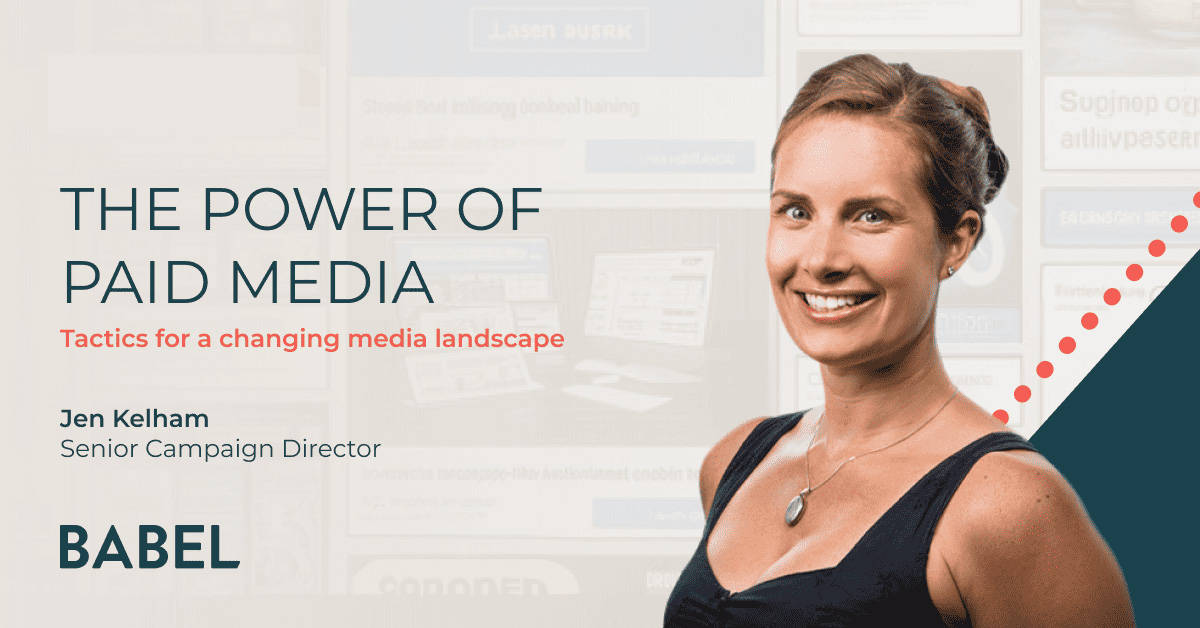
The Power of Paid Media
Paid media – an external marketing activity that involves payment for coverage and exposure, such as pay-per-click (PPC) advertising, sponsored articles, videos and whitepapers, and digital ads and banners – can be an essential component of revenue growth and brand awareness for businesses. There. I said it – possibly the most controversial thing you might hear from a communications professional this year (although, somehow, I highly doubt it!)
The ever-changing media landscape
Typically, there are three types of media – a digital marketing trifecta, if you will:
- Owned media – own website content, company blogs and social media channels
- Paid media – also referred to as advertising, but consisting of pay-to-play coverage
- Earned media – third-party endorsement through coverage, mentions, shares and re-posts
Public Relations (PR) traditionally targets earned media. Through a strategy involving media engagement, PR professionals aim to achieve media coverage which elevates their clients’ brand visibility, often in the form of press releases or news updates; quotes, comments, mentions; and contributed thought-leadership articles.
But over the last decade, the media landscape has shifted, and digitally transformed. The change mostly befalls publications which once used to run X number of print copies, but now reside purely online to compete with the newer, more agile, digital platforms delivering written news and video content. The shift has occurred to meet the appetite of readers who increasingly consume news on-the-go, via mobile devices. On top of that, it has proved to be more cost-effective, and not to mention quicker, to post news and content to a website or social feed than it is to print it – and arguably more sustainable too.
However, because of its nature – and the huge competition – of online content, it is harder to gate and monetise it. Subscription models only work if a publication has a strong and loyal following – a rarity with today’s fickle, distracted readers. So, publications must rely on paid or sponsored relationships with companies looking to promote their brand, to offset the free content they produce and offer readers, and the salaries they pay their writers. But despite this logical structure, companies are usually reticent to part with money for something they might have previously secured for free.
On behalf of a client, we recently worked with Fleet World, one of the UK’s leading fleet management titles, and the only title in the sector aimed specifically at director-level fleet decision-makers, offering advice on the key issues facing the fleet industry. I asked Fleet World’s publisher, Jerry Ramsdale, his thoughts on the benefits to be had from including paid media as part of a communications strategy:
“There are many benefits to ‘paid media exposure’ – working together/in association with esteemed industry publishers allows suppliers the opportunity to communicate more layered and authoritative messaging to a targeted audience. Fleet World is a print and online resource for the fleet industry, combining a mixture of journalist-written articles, independent road tests, interviews, and news stories covering the latest fleet developments, whilst occasionally featuring contributed/sponsored opinions from industry leaders.”
A comprehensive marketing strategy
There is a distinct difference between the different media tactics: paid media aims to drive traffic to a company’s website (where owned media is sat) to increase brand visibility, whereas earned media is focused not on driving traffic, but on positioning a brand, and it is used to build trust and increase brand awareness.
When activated concurrently and as part of a comprehensive marketing strategy, a multi-media approach can be incredibly harmonious. The ‘paid’ element also enables businesses to ‘give back’ to the publications in a way that they do not with earned media coverage.
At Babel, we are increasingly seeing huge value in leveraging paid media activity as part of our wider campaigns for clients. Whether it is a regular cadence of paid coverage to complement the thought leadership activity we are carrying out, or peaks of paid-for activity to support specific projects or events, the value is there for the taking.
However, that said, I do have a few tips, before you sign up for the next inbound request for a sponsored interview:
- Do your research. At Babel, if paid media is something you would like to explore, we would first discuss with you what your goals are, and who you want to reach. Babel can research different outlets to make sure you get the best ‘bang for your buck’: whether that’s readership data or historic relationships, we know what to look for and can offer advice in this area.
- Think about timings: A scatter-gun or ad-hoc approach to paid media will not make an impact compared to a strategic and well-thought-out plan of action. If you are looking to target a specific date, you need to consider the run-up to whatever you want to drive visibility of, so be sure to give yourself enough time.
- Know the difference: Ads, banners, PPC, social posts, newsletters, sponsored articles, whitepapers, webinars – it all has a place. Whilst ads and banners are a quick win, the value of longer content can sometimes outweigh them – especially as, for example, you can leverage paid sponsored articles as part of your social media output.
- Capitalise on the investment: Babel can hope you devise a strategy to make the most of any coverage secured as a result of a paid opportunity. It could be through content syndication across other outlets, sharing across social media (as mentioned above) or creating blog posts for your owned media channels. We can help guide you to make sure your choices can increase the ROI beyond the promises of the publication you’re paying.
- Put your best foot forward: For example, don’t put a nervous spokesperson forward for a video or live webinar; instead, harness their insights in a written interview. Don’t just rely on digital ads and banners with no explanation or further content to promote; instead, use ads and banners to promote your recent spokesperson interview. Play to your strengths – this is something Babel can help with.
If you would like to speak to Babel about navigating the waters of paid media, or whether you should incorporate paid media as part of your external marketing activity, please don’t hesitate to get in touch.
Written by Jen Kelham
Senior Campaign Director





